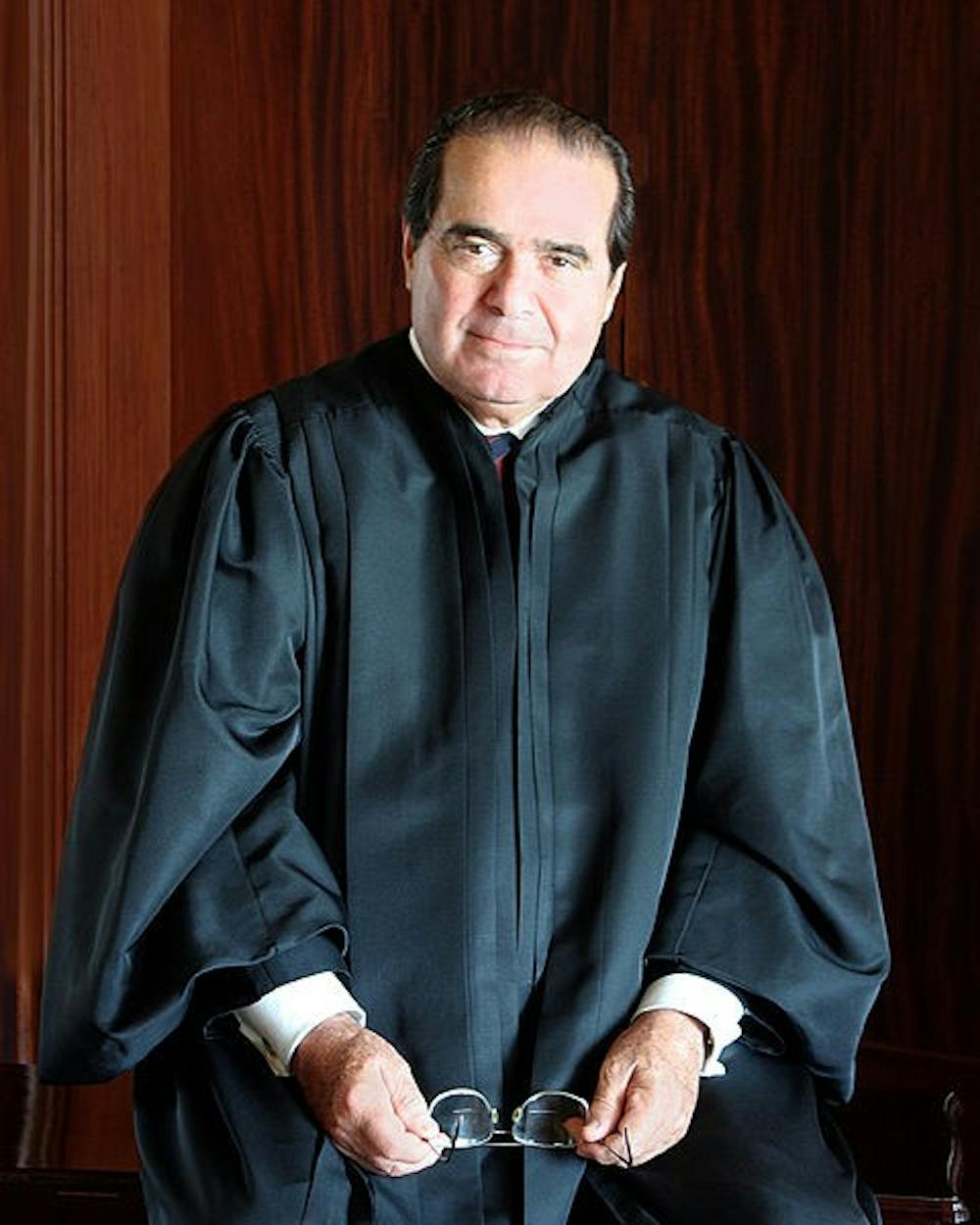Supreme Court Justice Antonin Scalia, a former University law professor and father of multiple University graduates, spoke Thursday to a packed Newcomb Ballroom as the guest speaker for the St. Anselm Institute for Catholic Thought.
“It’s always good to be back on the Lawn,” Scalia said. “My wife never forgave me for leaving.”
The talk, titled “Not to the Wise: The Christian as Cretin,” focused on Scalia’s views on faith and what it means to be a Catholic in a secular society.
Scalia began his lecture defining current societal divisions regarding Christianity, saying many secular individuals consider Christians to be unsophisticated.
Scalia provided biblical and historical anecdotes to support this view. He referred to the scripture, which quotes Jesus thanking God for hiding Christian truths from the wise, and to Saint Paul’s trip to Athens where his insistence God will raise Jesus from the dead was met with ridicule.
Thomas Jefferson, according to Scalia, was an intellectual who viewed his own rationale to be superior to that of scripture. Scalia criticized how Jefferson nonchalantly edited the Bible according to his own convictions.
“[Jefferson] was apparently quite sure that he could tell what was genuine and what was not in the transmitted text of the New Testament,” he said. “No problemo for a wise man.”
Scalia said rational thought should not be avoided by religious thinkers, and non-believers should not reject Christian beliefs without giving them fair chance. “What is irrational, it seems to me, is to reject with no investigation the possibility of miracles in general,” he said.
The conclusion of Scalia’s speech focused on Thomas More, a 16th-century Renaissance thinker. Scalia said More’s execution due to his insistence that King Henry VIII receive approval for his divorce from the pope is a “prime example of Christian as cretin.” He pointed out More’s fellow intellectuals viewed him to be a fool, but More was insistent upon remaining consistent with Christian orthodoxy.
“More was not seeing with the eyes of man, but with the eyes of faith,” Scalia said.
In his final remarks, Scalia reached out to Christians in the audience and asked them to have strength of faith and “the courage to have their wisdom regarded as stupidity.”
Audience questions following the speech led to Scalia to remark on a range of topics, including the history of his evolution as a Catholic and his views on the separation of the church from government and college campuses.
Scalia recalled he became more religious while studying abroad during his junior year at Georgetown University. “I saw a Roman Catholic priest standing on a soap box, preaching the truth of the Catholic faith and being heckled by people,” he said. “That had an enormous effect on me.”
Scalia said it was unfortunate American college campuses and foreign nations have attempted to separate themselves from historic ties to religion and have avoided making public references to faith. He said it is a triumph that American politicians continue to say “God Bless America.”
Audience members gave Scalia multiple standing ovations over the course of the speech. Third-year College student Alyssa D’Angelo said she was pleased to hear a prominent intellectual encourage Catholics to be willing to be called fools. “I think that’s especially relevant on a college campus where a lot of people are secular, and Christian beliefs are challenged,” she said.
John Miller, chairman of the Classics Department, organized the event and said he was pleased with the display of student interest and the subject matter of Scalia’s speech. “The point of the St. Anselm Institute is to foster discussion of Christianity in general from all points of view,” he said. “We were fortunate to have Justice Scalia.”







